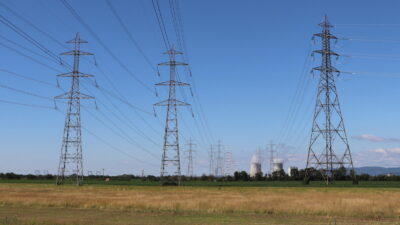PR19 Redeterminations: companies’ Statements of Case—cost allowance
Following Ofwat’s 2019 price review of water companies, four companies have appealed to the CMA for a redetermination of PR19. Each company has submitted its Statement of Case (SoC), which outlines its disagreements with Ofwat’s methodology and findings. An important part of Ofwat’s Final Determination is the costs that each company should be allowed to incur over the five-year period covered by the price review (2020–25).
While each company has its own specific issues, a few key themes can be drawn out across the four submissions. (These themes are pertinent to a number of regulated sectors and jurisdictions, so how they are eventually determined by the CMA will be of interest to many regulated companies and regulators.)
Catch-up efficiency and the choice of the benchmark
Ofwat uses econometric models to calculate an allowed base expenditure1 for each company. At the earlier stages of this price review, Ofwat applied a catch-up efficiency challenge based on upper quartile cost performance in the water and wastewater service areas.2 For the Final Determination, Ofwat changed its choice of benchmark to the fourth-ranked company in water and the third-ranked company in wastewater.
All of the four SoCs note that this change to a more stringent benchmark was not based on any empirical evidence. Indeed, they argue that the new benchmark is disproportionate on the basis of confidence in the accuracy of the models, its unrepresentative nature, and the unique circumstances of some of the companies used to set the benchmark and regulatory precedent. The companies therefore suggest that the CMA should reconsider what an appropriate benchmark should be.
The majority of enhancement costs (expenditure to meet new legislative requirements and improve the level of service) are considered by Ofwat separately to its base cost modelling. All four companies argue that the efficiency challenges applied to these costs (based on the upper quartile for a large proportion of appellants’ enhancement costs) are also too stringent because of the simplicity of the models, the use of forecast data (which, by definition, is more uncertain than outturn data), and the use of models that are based on a limited number of observations.3
Frontier shift and real price effects
After calculating the modelled cost allowance and applying a catch-up efficiency challenge, Ofwat imposes a ‘frontier shift’ challenge of 1.1% p.a. This is overlaid to capture productivity advances expected in the sector over the upcoming regulatory period. Some of the companies argue that Ofwat’s methodology was flawed and that the challenge is too high compared with regulatory precedent. They also argue that the frontier shift should not be applied to unmodelled costs,4 and that the frontier shift applied to wastewater WINEP enhancement costs (relating to compliance with certain statutory environmental obligations) constitutes a ‘double-count’, as it is applied in addition to a forward-looking benchmark.
Ofwat also takes into consideration ‘real price effects’ (RPEs). These are intended to capture changes in the specific costs that water companies face, additional to general inflation in the economy. In its Final Determination, Ofwat decided to take into account only the changes in input prices relating to labour costs. The companies put forward the argument in their SoCs that other input prices should also have been included by Ofwat, particularly energy and chemical costs.
Growth costs
Ofwat changed its approach during PR19 to include costs associated with a growing population within its modelling of base costs, rather than as a separate cost area. At the Final Determinations, Ofwat introduced an ex post modelling adjustment to adjust its cost allowance if companies forecast higher or lower population growth compared with the historical average for the sector. In their SoCs, some companies set out how they consider the Final Determination allows inadequate recovery of growth costs associated with above industry average growth due to, in their view, the use of unreliable forecast household growth by Ofwat and not adequately accounting for the higher costs associated with new connections. Northumbrian, in contrast, only disputes Ofwat’s ex post modelling adjustments introduced at the Final Determinations.
The impact of quality of service on costs
The four companies also raised the issue that the Final Determination does not adequately allow companies to recover costs relating to providing a high quality of service. Companies have varying levels of service, and Ofwat considered that companies could meet certain quality targets from their allowed modelled base costs, which were based on historical performance—i.e. that there was no direct link between cost reduction and quality. All four companies dispute this, arguing that maintaining a high level of service is not costless and therefore Ofwat’s approach underfunds companies in this area and does not incentivise high performance.
1 Base expenditure includes operating expenditure and capital maintenance expenditure.
2 This would be between the fourth- and fifth-ranked companies on water, and the third- and fourth-ranked companies on wastewater.
3 Bristol Water’s argument on the efficiency challenge for enhancement expenditure is mainly about a 10% ‘company-specific challenge’ applied to enhancement items covered by a ‘shallow dive’ (a high-level bottom-up review), rather than those areas that are modelled econometrically (this issue is also raised by the other companies).
4 These include uncontrolled costs such as business rates and abstraction charges.
Download
Related

Ofgem RIIO-3 Draft Determinations
On 1 July 2025, Ofgem published its Draft Determinations (DDs) for the RIIO-3 price control for the GB electricity transmission (ET), gas distribution (GD) and gas transmission (GT) sectors for the period 2026 to 2031.1 The DDs set out the envisaged regulatory framework, including the baseline cost allowances,… Read More

Time to get real about hydrogen (and the regulatory tools to do so)
It’s ‘time for a reality check’ on the realistic prospects of progress towards the EU’s ambitious hydrogen goals, according to the European Court of Auditors’ (ECA) evaluation of the EU’s renewable hydrogen strategy.1 The same message is echoed in some recent assessments within member states, for example by… Read More

